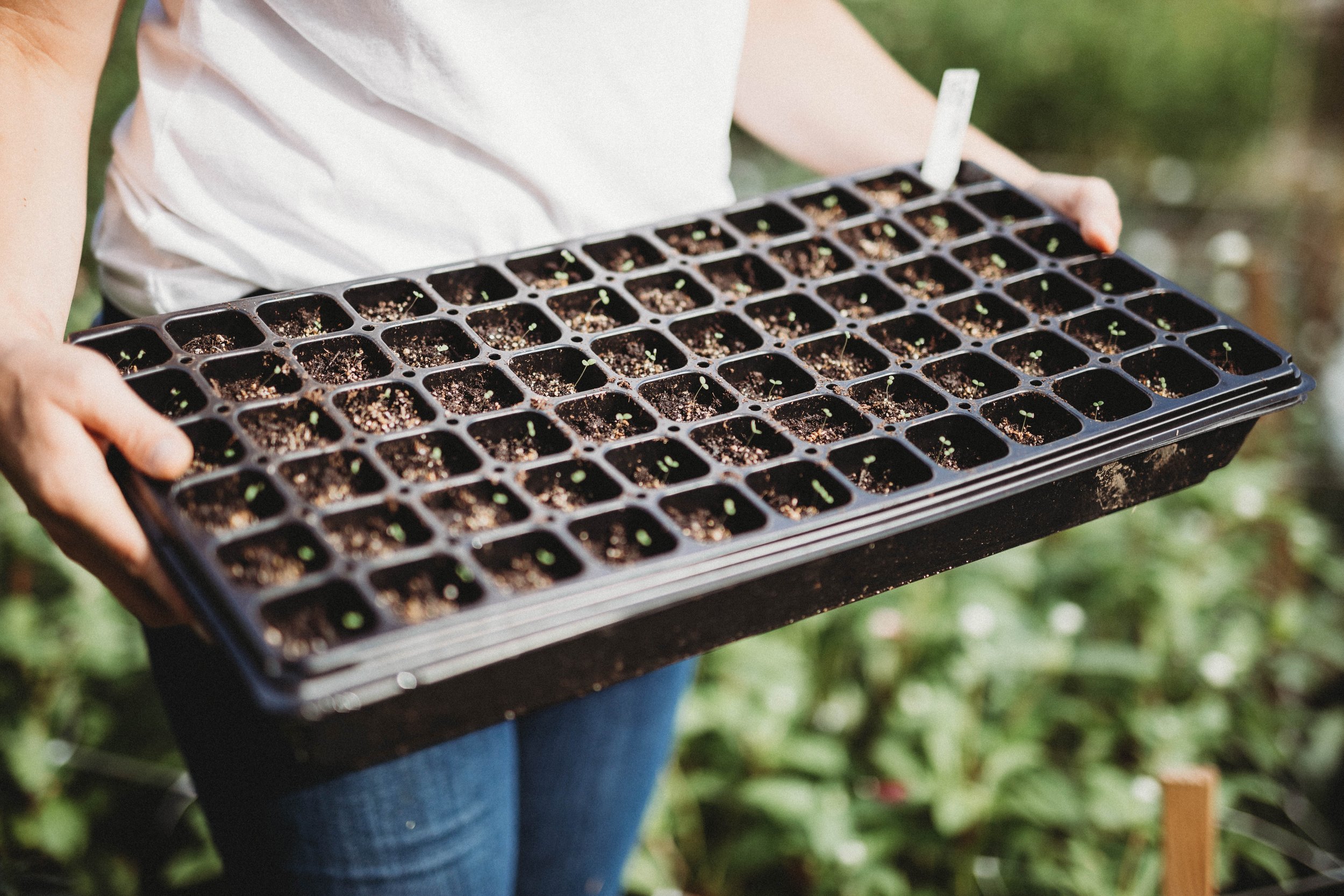Welcome to
Silver Street FLower Farm
Silver Street Flower Farm is an urban cut flower farm and floral design studio on one acre in Dover, NH. We practice regenerative agriculture to improve the health of our soil and use high-intensity growing to squeeze out as many blooms as we can from our small space. We use organic practices and products, reusable or compostable design materials, and consider the environmental impact of everything we do here.
The Designer
I’m Sally! I am the farmer/florist/owner of Silver Street Flower Farm. I’m a NH native, a Colby College Alumna, and a twin mom. My mother is a farmer, and after careers in non-profit fundraising and childcare, I returned to what I love and know best and started my little farm. I love bringing people joy with flowers. I feel grateful I get to do something every day that builds my relationship with the natural world.
Our Principals and Goals
Regenerative Agriculture
Regenerative practices rebuild life and nutrients in soil instead of degrading soil. Building soil health leads to 1) fewer inputs like fertilizer and soil amendments, 2) increased organic matter and non-soluble carbon, 3) reduced irrigation due to better water retention and resilience against drought, 3) less erosion because of good soil structure, 4) an increase in beneficial insects and a decrease in pests.
Low-till Farming
Disturbing the soil – especially with deep tillage – releases valuable carbon into the air, dries the soil out, disrupts the living systems in dirt (earthworms, bacteria, fungi) and breaks apart structure that helps soil hold on to nutrients and water. Principals of low-till farming include 1) keep the soil covered as much as possible. This keeps the soil protected from heavy rains, extreme temperatures, and intense sun. 2) Keep the soil planted as much as possible. In addition to protecting the soil, plants in the ground live through photosynthesis, which helps feed the living systems in the soil 3) Disturb the soil as little as possible.
Some of the methods we use include cardboard and compost layering, compost mulching, deep mulch with grass and leaves, broadforking, covercrops, and occultation.
Acknowledgement
We are a work in progress when it comes to understanding and acknowledgement. Our farm exists on Pennacook, Wabanaki Confederacy, and Abenaki land. We acknowledge that the agricultural principles we are using were appropriated from indigenous cultures. We are consciously working to understand our history and relationship with the land.
Provide beautiful, local, seasonal blooms
Because we don’t have to ship our flowers, we are able to grow varieties that don’t travel well and are hard to purchase from suppliers. Hello, dahlias! Our flowers are cut and sold within 36 hours with minimal transportation, so they are the freshest you can get your hands on. The fragrance and integrity of the flowers is unmatched because there’s minimal handling and no storage or shipping.
Lower your environmental impact
Buying local flowers dramatically reduces the carbon footprint of your purchase. The flowers we grow here are either sold here or travel just a few miles. We don’t use large, gas-powered mechanical equipment. Most of the cut flowers sold in the US are imported – often grown in Colombia, flown to a floral exchange in Europe, flown into a southern US port, then transported throughout the US, refrigerated all the way. Flowers that aren’t imported are grown in California. Woah! If buying flowers at the grocery store in freezing February brings you joy, you should do it! If sending flowers to a grieving friend in December shows them you’re thinking about them and will ease their grief, definitely send them. I buy bananas all year round. Definitely not local to NH. But be thoughtful about it and buy local seasonal flowers as much as possible. The flowers we grow here are either sold here or travel just a few miles.
Treatment of farm workers
At our farm, one person grows and harvests everything (it’s me!) When you purchase local produce from farmers you know, you can be sure their workers are treated well. Every farm is different, but industrial farms often rely on cheap labor and cheap methods. Many farm workers are not paid a living wage, suffer from harsh working conditions and pesticide exposure, and struggle to feed their own families.

